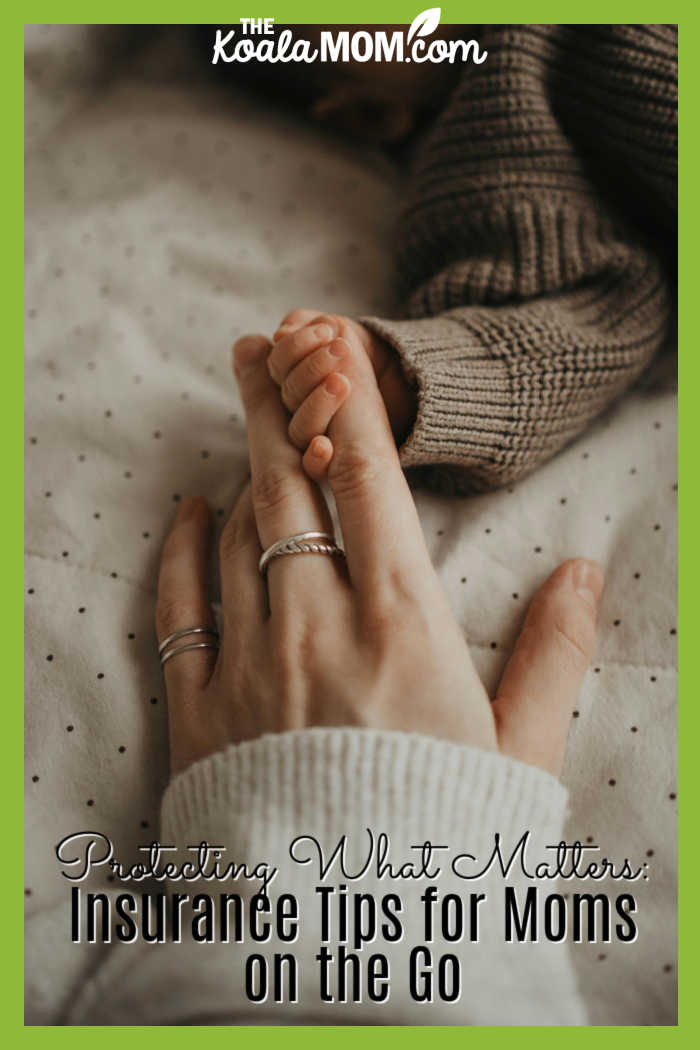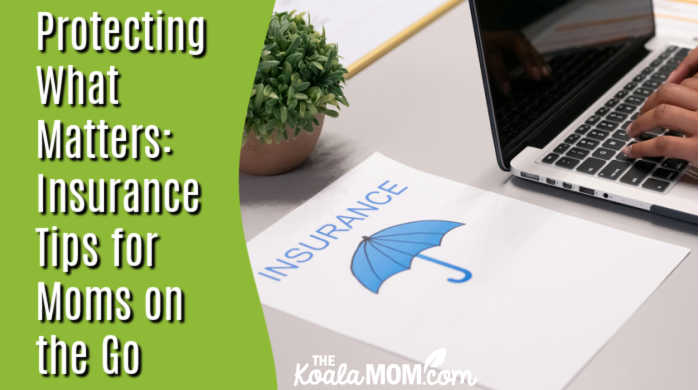Moms juggle a million responsibilities, from managing the household to ensuring their children’s safety and well-being. In the midst of all this, insurance might not always be a top priority. However, having the right coverage in place can provide peace of mind, knowing that you and your family are financially protected from unexpected situations.
Whether it’s health emergencies, car accidents, or home damages, insurance acts as a safeguard against life’s uncertainties. For busy moms, understanding which types of insurance are essential and how to maximize their benefits can make all the difference.

Health Insurance
Health insurance is one of the most important policies a mom can have, ensuring access to medical care for both herself and her children. When evaluating health insurance plans, consider coverage for routine check-ups, emergency visits, maternity care, and pediatric services.
If you’re employed, check if your workplace offers a family health plan that meets your needs and ensure that all family members are listed on the plan. For self-employed moms or those who don’t receive employer-sponsored insurance, researching government programs or marketplace plans can be beneficial. For example, I pay for private health insurance for myself to cover my dental and eye care expenses.
Additionally, always check for in-network doctors and hospitals in the US to minimize out-of-pocket expenses. Having a clear understanding of deductibles, co-pays, and out-of-pocket maximums can prevent unexpected medical bills. In Canada, know what is covered by your provincial healthcare plan and what is not covered (if in doubt, ask your healthcare provider) to avoid surprises.
If you are divorced, ensure you know which parent’s insurance is covering the children’s healthcare, and what it covers. You and your spouse should each share your insurance coverage documents, update each other if your insurance coverage change, and discuss who is claiming the children’s healthcare on their insurance. This should also be documented in your divorce agreement to ensure ongoing coverage for your children (and you, if possible).
Life Insurance
No one wants to think about worst-case scenarios, but as a mom, planning for the future is crucial. Life insurance can protect your loved ones in case something happens to you.
Term life insurance is a cost-effective option that provides coverage for a set period, often 10, 20, or 30 years. Whole life insurance, on the other hand, offers lifelong coverage and a cash value component. Speak to your insurance agent about what is the best option for you and your current needs, but whole life insurance is worth the additional cost as it’s an investment that will provide a better return than term life.
The amount of coverage needed depends on factors such as mortgage payments, education expenses, and day-to-day living costs. Even stay-at-home moms should consider life insurance, as their contributions to childcare and household management would be costly to replace. Try adding up the cost of daycare, housecleaning, and meal prep if you had to pay someone else to do that, and then purchase insurance enough to cover this.
In cases of divorce, life insurance should be addressed in your separation or divorce agreement. Each party should be covered. The party paying child support should have enough life insurance coverage to ensure that the child support payments can continue in the event of their death. The party providing primary care for the children should have enough life insurance coverage to replace that care (e.g., daycare or after school care).
Auto Insurance
For moms constantly on the move—whether shuttling kids to school, running errands, or commuting to work—having the right auto insurance is essential. A comprehensive policy should cover liability, collision, and uninsured motorist protection.
Moms should also look for policies that include roadside assistance, rental car reimbursement, and gap coverage in case their vehicle is totaled. If your car insurance policy doesn’t offer roadside assistance, consider finding this separately. For example, after dealing with three flat tires in one year, I decided to get BCAA roadside assistance just in case (and haven’t had a flat since). Rental car coverage is also important because your kids activities don’t take a break just because your car isn’t available. I also found that while many car repair places offer courtesy vehicles, not many had mini vans that would accommodate my family.
Safe-driving discounts and bundling policies with home or renters’ insurance can help save money. If you frequently drive with children, ensure your policy provides coverage for medical expenses related to accidents. Reviewing your policy annually can help you find better rates and ensure adequate coverage.
Homeowners or Renters Insurance
A home is more than just a structure—it’s where memories are made and families grow. Homeowners insurance provides financial protection against damages from fire, theft, storms, and other disasters. If you’re renting, a renters insurance policy can cover personal belongings and liability in case of accidents.
Moms should pay attention to coverage limits and additional protections, such as flood or earthquake insurance if living in high-risk areas. Ensuring that valuable items, such as jewelry and electronics, are adequately covered is also crucial. Taking an inventory of household items and keeping receipts can make filing claims easier when needed.
Disability Insurance
Many moms overlook disability insurance, but it can be a game-changer in case of illness or injury. If an accident or medical condition prevents you from working, disability insurance provides a portion of your income to help cover expenses. Even stay-at-home moms can benefit from this type of insurance, as their role in childcare and household management is invaluable.
Short-term disability insurance covers temporary conditions like maternity leave, while long-term disability insurance provides extended financial support for more severe health issues. Checking whether your employer offers disability benefits or purchasing an individual policy can provide much-needed security.
Umbrella Insurance
An umbrella insurance policy provides additional liability coverage beyond standard auto, home, or renters insurance. This can be especially useful for moms with young children who frequently have guests over, host playdates, or own high-risk assets like a swimming pool. If someone were to get injured on your property or you were involved in a major lawsuit, umbrella insurance could cover costs that exceed regular policy limits. This extra layer of protection is often affordable and can be a lifesaver in unexpected situations.

As a busy mom, your days are packed with responsibilities, but taking the time to secure the right insurance coverage can provide invaluable peace of mind. From health and life insurance to auto and home protection, having the right policies in place ensures that your family is financially safeguarded in case of unexpected events.
Regularly reviewing your coverage, exploring discounts, and staying informed about your options can help you make the best decisions for your family’s future. By taking proactive steps today, you’re ensuring a safer and more secure tomorrow for the people who matter most.

No Responses Yet